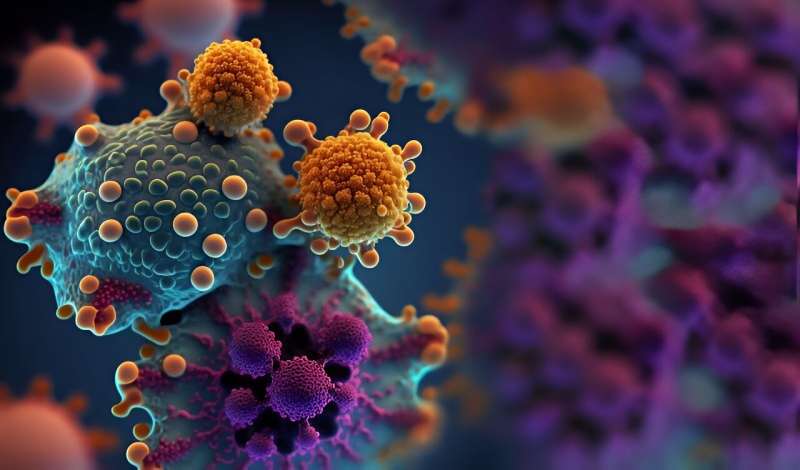CD19 chimeric antigen receptor (CAR) T-cell therapy seems feasible, safe, and efficacious for patients with different autoimmune diseases, according to a study published in the Feb. 22 issue of the New England Journal of Medicine.
Fabian Müller, M.D., from the Friedrich-Alexander University Erlangen-Nürnberg in Germany, and colleagues examined patients with severe systemic lupus erythematosus (SLE), idiopathic inflammatory myositis, or systemic sclerosis (eight, three, and four patients, respectively) who received a single infusion of CD19 CAR T-cells after fludarabine and cyclophosphamide preconditioning.
Efficacy was assessed up to two years after CAR T-cell infusion, measured using the Definition of Remission in SLE (DORIS) remission criteria, American College of Rheumatology-European League against Rheumatism (ACR-EULAR) major clinical response, and the score on the European Scleroderma Trials and Research Group (EUSTAR) activity index.
Patients were followed for a median of 15 months. The mean duration of B-cell aplasia was 112 ± 47 days. The researchers found that all patients with SLE had DORIS remission, all patients with idiopathic inflammatory myositis had an ACR-EULAR major clinical response, and a reduction in the score on the EUSTAR activity index was seen for all patients with systemic sclerosis. In all patients, immunosuppressive therapy was completely stopped. In 10 patients, grade 1 cytokine release syndrome occurred.
"Even though it is premature to judge whether these patients are indeed cured from their autoimmune disease, CD19 CAR T-cells at least appear to be able to achieve sustained disease- and drug-free remission," the authors write.
More information: Fabian Müller et al, CD19 CAR T-Cell Therapy in Autoimmune Disease—A Case Series with Follow-up, New England Journal of Medicine (2024). DOI: 10.1056/NEJMoa2308917
John D. Isaacs, CAR T Cells—A New Horizon for Autoimmunity?, New England Journal of Medicine (2024). DOI: 10.1056/NEJMe2400203
Journal information: New England Journal of Medicine
Copyright © 2024 HealthDay. All rights reserved.























